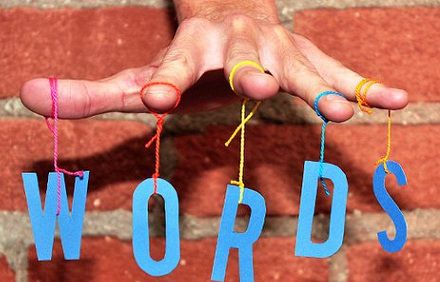Word这个单词你会用吗?
|
爱思英语编者按:“Word,”这个词用正确了会是英文中最丰富多彩而又灵活的单词。类似于单词“fuck”的效力,“word”可用于指许多不同的事物。它是少见的可以指相反意思的单词,取决于上下文情景,语气和肢体语言。“word”还是英语语言中最复杂的一个词之一,因为它有众多用法。想要真正区分这些词的用法,你需要认真观察上下文情景和说话者的语气。
“Word,” when used correctly, can be one of the most colorful and versatile words in the English language. Similar to the word “fuck,” “word” can be used to mean many different things. It is one of the rare words that can mean exact opposites, depending on context, tone, and body language.“Word” is also one of the most complicated words in the English language, simply because it has so many uses. To tell the difference between it’s many uses, you really need to pay attention to the context and intonation of the speaker. Informal Uses of “Word”非正式用法 1. Word can mean okay or just to communicate that you heard them. E.g.: “I’ll be there in 5 minutes.” “Word.” E.g.: “I’m going to the store, I’ll be back later.” “Word.” Note: Here it’s usually said quickly and indifferently. 2. Word can mean cool, like: E.g.: “I got an A on my test.” “Word.” Note: Here it’s used with a little more excitement, and it’s a little more drawn out.. 3. Word can be used in an annoyed or indifferent way, like yeah, whatever: E.g. : “Hey man, you forgot to clean up.” “Word.” E.g.: “I’m going to hang out with John (someone you don’t like).” “Word.” Note: Here it’s used often with the roll of the eyes, and in annoyed sound in their voice. It’s also a little drawn out.. 4. Word can be used to show disbelief, like “really?” E.g.: “Yo, I got a new car.” “Word?!” 5. Word up is also sometimes used, but it has a slightly different meaning. It can mean I agree with what you’re saying, usually with some enthusiasm. E.g.: “Language Tips is amazing!” “Word up!” 6. To put words in your mouth means to falsely or inaccurately report what you said. E.g.: “Hey man, that’s not what I said. You’re putting words in my mouth.” 7. To take the words out of my mouth means I was thinking the exact same thing. E.g.: “I was just about to say that! You took the words right out of my mouth.” 8. Word on the street is a rumor or piece of information that is currently being talked about. E.g.: “Word on the street is Chad has a fan club.” 9. Word to the wise is a hint or brief explanation given. E.g.: “Word to the wise, don’t go through the favelas in a BMW.” Less Informal Uses of “Word”稍微正式点word口语用法 10. To give your word means to tell the truth: E.g.: “Will you be here when I get back? Give me your word.” 11. Don’t take my word for it is to trust what is being said: E.g.: “Papaya is delicious, but don’t just take my word for it, try it yourself. 12. Keep your word, do what you have promised. E.g.: John gave his word to not eat meat for 30 days. E.g.: Remember John, you said you would go on a vegetarian diet for 30 days, keep your word. 13. To have a word is to have a quick conversation, to speak briefly. E.g.: “I have some news, can I have a word with you real quick?” 14. In other words, to express something in a different way. In other words is often abbreviated as i.e. E.g.: “I got drunk at the bar last night, so in other words I’m getting better at holding my liquor.” 15. Just say the word means I am at your service, just tell me when you want to be served. E.g.: “Would you like some water?”“Not now, maybe later.”“Just say the word.” 16. Word of mouth is when Information passed through people talking, not through the written language. “Capoeira was passed down through word of mouth.” 17. Words fail me / at a loss for words means to be unable to speak. Often used to express disbelief or dismay. E.g.: “Words fail me, I don’t know what to say…” or “I can’t believe he did that, I’m at a loss for words…” 18. In your own words means to say it as you think it. E.g.: In your own words, what does chapter 12 say? |









